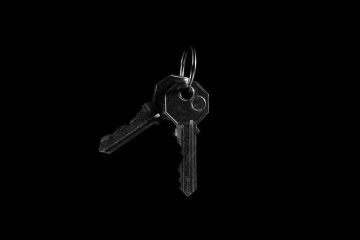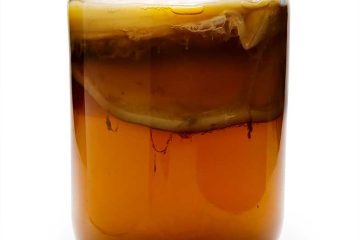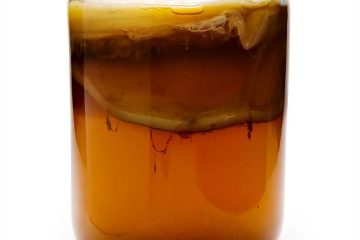Understanding the Caffeine Content in Kombucha Tea: What You Need to Know

Understanding the Caffeine Content in Kombucha Tea: What You Need to Know
Understanding the Caffeine Content in Kombucha Tea: What You Need to Know
Kombucha tea has been gaining popularity in recent years, lauded for its potential health benefits and unique taste. This fermented beverage is made from tea, sugar, bacteria, and yeast, and is often touted for its probiotic properties and digestive health benefits. However, one aspect of kombucha that many people may not be aware of is its caffeine content.
In this article, we will delve into the caffeine content in kombucha tea, what you need to know about it, and how it can impact your consumption of this trendy beverage.
What is Kombucha Tea?
Kombucha tea originated in China over 2,000 years ago and has been used for its purported health benefits ever since. It is made by fermenting sweetened tea with a symbiotic culture of bacteria and yeast (SCOBY), resulting in a slightly fizzy, tangy beverage that is often flavored with various fruits and spices. During the fermentation process, the SCOBY consumes the sugar in the tea, converting it into organic acids, carbonation, and small amounts of alcohol.
Kombucha is often lauded for its potential health benefits, which include improved digestion, boosted immune function, and increased energy levels. However, the presence of caffeine in kombucha may raise questions for those who are sensitive to or trying to avoid this stimulant.
Understanding Caffeine in Kombucha Tea
Caffeine is a natural stimulant found in various foods and beverages, including coffee, tea, and chocolate. It is known for its ability to increase alertness and improve focus, but excessive consumption can lead to negative side effects such as anxiety, insomnia, and jitters. As such, it is important for consumers to be aware of the caffeine content in the products they consume, including kombucha tea.
In traditional kombucha tea, caffeine is derived from the tea base used in the brewing process. This means that the caffeine content can vary depending on the type and strength of the tea used. Generally, black and green teas are the most commonly used bases for kombucha, both of which contain caffeine. However, the amount of caffeine in kombucha is typically less than that found in a cup of coffee, making it a more moderate source of the stimulant.
The precise caffeine content of kombucha can vary depending on the brewing process and the length of fermentation. Some commercial brands may also add additional caffeine from sources such as green tea extract or coffee cherry, further increasing the caffeine content. As such, it is important for consumers to read the labels and understand the potential caffeine content of the specific kombucha product they are consuming.
How Caffeine in Kombucha Tea Can Impact You
For those who are sensitive to caffeine or trying to limit their intake, the presence of caffeine in kombucha tea may be a concern. It is important to be mindful of the amount of caffeine consumed from all sources, including kombucha, to avoid negative side effects. While the caffeine content in kombucha is generally lower than that in coffee, frequent or excessive consumption of kombucha may still contribute to overall caffeine intake.
Additionally, some individuals may be more sensitive to caffeine than others, experiencing adverse effects even from small amounts. These individuals should exercise caution when consuming kombucha and monitor their reactions to determine their tolerance levels. It is also important to consider the time of day when consuming kombucha, as the caffeine content may affect sleep quality if consumed in the evening or at night.
For those who are not sensitive to caffeine and enjoy the energizing effects of the stimulant, the presence of caffeine in kombucha may be a welcome addition. The moderate amount of caffeine in kombucha can provide a gentle energy boost without the intensity often associated with coffee or energy drinks. However, it is still important to be mindful of overall caffeine intake from other sources and to consume kombucha in moderation.
How to Determine the Caffeine Content in Kombucha Tea
When choosing a kombucha tea, it is important to consider the caffeine content and how it may align with your personal preferences and sensitivities. To determine the caffeine content of a specific kombucha product, there are several steps you can take:
1. Read the Label: Many kombucha brands provide information about the caffeine content on their labels. Look for this information when selecting a kombucha product and compare different brands to find one that aligns with your desired caffeine intake.
2. Research the Tea Base: Different teas contain varying levels of caffeine, with black tea generally containing more caffeine than green tea. Research the type of tea used in the kombucha brewing process to gain insight into the potential caffeine content of the final product.
3. Consider Brewing Time: The length of fermentation can impact the caffeine content of kombucha. Longer fermentation periods may result in lower caffeine levels, as the SCOBY has more time to consume the caffeine present in the tea base.
4. Ask the Producer: If you have specific concerns about the caffeine content of a particular kombucha product, consider reaching out to the producer for more information. Many producers are willing to provide details about their brewing process and the caffeine content of their products.
By being mindful of these factors, you can make more informed decisions about the kombucha products you consume and ensure that you are comfortable with the caffeine content.
Alternatives to Caffeinated Kombucha Tea
For those who are seeking the potential health benefits of kombucha but prefer to avoid caffeine, there are alternatives available. Many kombucha brands offer caffeine-free varieties that are made using herbal teas or other non-caffeinated bases. These products provide the same probiotic properties and unique flavors of kombucha without the stimulant content, making them suitable for individuals who are sensitive to caffeine or looking to limit their intake.
In addition to caffeine-free kombucha, there are other non-caffeinated beverages that offer similar health benefits and flavors. These can include herbal teas, fruit-infused waters, and various non-alcoholic fermented beverages. Exploring these alternatives can provide a diverse selection of beverages to enjoy while accommodating individual preferences and dietary restrictions.
Final Thoughts
Kombucha tea offers a unique and diverse range of flavors, potential health benefits, and a refreshing alternative to traditional sodas and sugary beverages. Understanding the caffeine content in kombucha is important for individuals who are sensitive to caffeine or those who are seeking to manage their overall intake of the stimulant. By considering the factors that impact caffeine levels in kombucha and exploring caffeine-free alternatives, consumers can make informed decisions about their beverage choices to align with their preferences and health goals.
As the popularity of kombucha continues to grow, consumers can expect to see a wider range of options that cater to various dietary needs and flavor preferences. Whether seeking a gentle energy boost from the moderate caffeine content of traditional kombucha or opting for a caffeine-free alternative, there are options available to suit diverse tastes and lifestyles.
Ultimately, the key is to be mindful of the caffeine content in kombucha tea, make informed choices based on personal preferences and sensitivities, and enjoy this unique beverage in a way that aligns with individual wellness goals and lifestyle preferences.
[elementor-template id=”430″]
[elementor-template id=”433″]




0 Comments